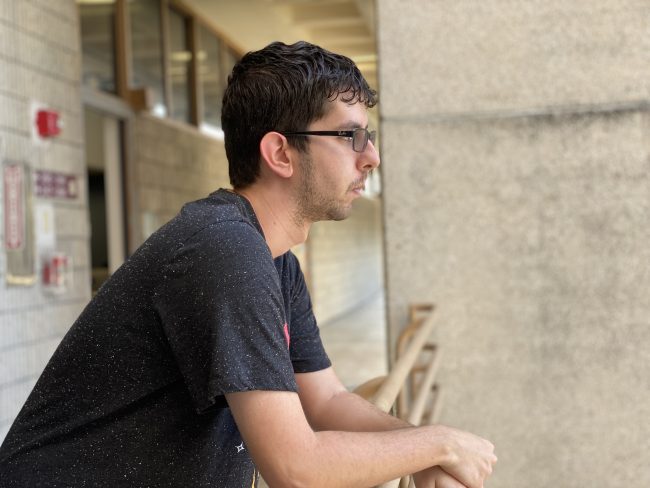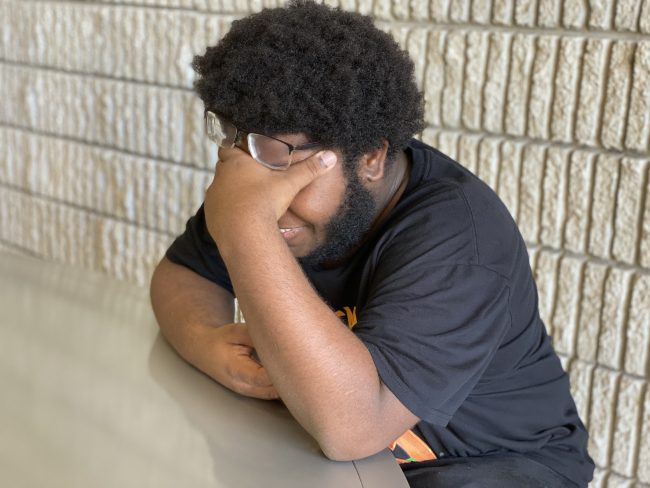After former Vice President Joe Biden’s comeback on Super Tuesday, in which he took the lead in delegates among Democratic candidates for president over Vermont Senator Bernie Sanders, young voters are disillusioned and feel they have been excluded from the election process ahead of Florida’s March 17 primary.
During the last decade, the number of unaffiliated voters has been increasing in the state, particularly among youth. Data from the Florida Department of State shows the number has swollen by more than 5 percent since 2017. Florida has closed primaries, which prohibit independent and unaffiliated voters from casting ballots in parties’ primary elections. Many young voters who would have otherwise thrown their weight behind presidential candidate Bernie Sanders are unable to vote for him.
Interviews with students from Miami-Dade and Broward counties confirm their frustration.
Matthew Garcia, a 23-year-old unaffiliated voter, said if he could vote in the primary, he would back Sanders because the 78-year-old Brooklyn-born senator’s ideals line up with what he is interested in the most.

Garcia thinks former primary candidates Amy Klobuchar, Pete Buttigieg and Michael Bloomberg endorsed Biden because the Democratic Party doesn’t want Sanders to be the nominee.
Sanders, Garcia said, has drawn the ire of the wealthy. “That’s kind of who he’s targeted against, because he’s trying to help out the average person … They’re trying to prevent him from going further because they know if he goes through, he’s going to be trying to push an agenda that hurts them collectively.”
Garcia added that Sanders is trying to help “people like us, any college student, people who are working a 9 to 5.”
Rashawn Raysor, 19, was glad that Bloomberg dropped out because of the stop-and-frisk policy he instituted in New York City in the 1990s that particularly targeted African Americans. Raysor was unsettled by Bloomberg’s immense wealth and likened him to a “Democratic version of Trump.”

When it comes to his choice for president, Raysor said that he was torn between Sanders and Massachusetts Senator Elizabeth Warren, but leans slightly more towards the latter. (After the interview was conducted, Warren dropped out.)
“[Warren] actually has real strategic policy plans that back up the ideas she has … I want to see something concrete.”
When it came to issues of race, he feels none of the candidates have a firm grasp. “All of them were somewhat clumsy in terms of race and racial justice and going after those disparities,” Raysor said about the candidates’ performance in recent debates. “They all had certain blind spots. Biden was the clumsiest in terms of rhetoric.”
Raysor added that Biden depended far too much on Obama to relate to African Americans. His policies are too moderate to really benefit the community. He believes Warren and Sanders have better policies that would benefit African Americans, especially when it comes to health care.
Layra Gonzalez, 25, said she prefers Sanders because of the Green New Deal. However, she views his universal healthcare plan as “a bit optimistic” and perhaps unachievable. Gonzalez said she doesn’t mind paying higher taxes to ensure medical care for her fellow Americans who need it.
Despite her personal convictions, Gonzalez believes Trump is going to win the 2020 election.
“Most young voters want Bernie,” she said. “But voter turnout does not match the support.”
None of these young voters backed any of the three presidential candidates that dropped out in the last four days. Buttigieg dropped out of the race Sunday, followed by Klobuchar on Monday and Bloomberg on Wednesday.
All of those candidates endorsed Biden for the greater cause of defeating Trump. Biden emerged victorious after Super Tuesday with 10 states, followed closely by Sanders, who took five. Warren finished a distant third.
































